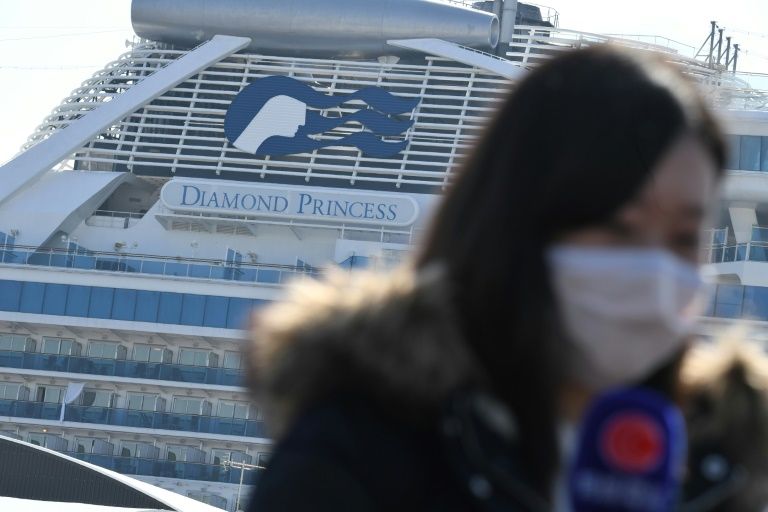Deadly viruses, chickenpox outbreaks and mass cases of the runs: sometimes luxury cruise ship holidays are not the trips of a lifetime elderly passengers had hoped for.
Cruise-goers have fallen sick en masse in the past, their predicament on the high seas coming into sharp focus because the holidays can cost thousands of dollars and are often marketed as trips of a lifetime.
"Cruise ships are very prone to outbreaks of common cold and the vomiting virus," said John Oxford, professor of virology at Queen Mary University of London.
"Invariably the ships are overcrowded and with so many passengers, hygiene levels can slip."
The US Centers for Disease Control and Prevention (CDC) logged eight outbreaks aboard cruise ships last year of the highly contagious norovirus, which causes vomiting and diarrhoea -- hardly the stuff of a dream holiday.
Measles, E. coli, chickenpox and salmonella poisoning have all broken out on cruises in recent years.
"Unfortunately, the more elderly demographic found on a typical liner are more likely to be susceptible to anything which might present a serious health challenge," warned Dr Simon Clarke, an associate professor at Britain's University of Reading.
With global concerns mounting about the threat of the new coronavirus, an elderly Japanese man and woman died on Thursday having been on the virus-stricken Diamond Princess.
The vessel, moored in Yokohama, was by far the biggest coronavirus cluster outside the epicentre in China. Some have pointed the finger at Japan's authorities for how they handled the 14-day quarantine of hundreds of passengers.
For now, US authorities have recommended that travellers "reconsider" cruises to or in Asia, citing the risk of coronavirus-linked travel restrictions and quarantines.
Annual growth
Stewart Chiron, a leading industry expert, says that cruise ships are nothing like the hotbed of viruses that they are painted out to be and cruise lines take "extensive precautions to keep ships clean".
"When viruses are introduced, cruise lines have various protocols and procedures to clean ships and prevent further spreading of the virus," he added.
US-based Chiron says that the image of thousands of people crammed together on board -- ripe conditions for the spread of illness -- is also wide of the mark.
"Cruise ships are much larger than most people realise. There's plenty of space for passengers to spread out in to have enjoyable, healthy experiences," he said.
According to Chiron, citing CDC figures, of the more than 31 million people who holidayed on cruise ships last year, there were 1,038 cases of norovirus, or 0.003 percent.
Chiron and other experts say that the cruise industry has successfully shrugged off past negative headlines and will quickly bounce back once the coronavirus passes.
Cruise Lines International Association, the world's largest cruise industry trade organisation, says 17.8 million people took an ocean cruise in 2009, compared with last year's 31 million, demonstrating its continually growing popularity.
About half of all passengers are from North America and analysts say they are unlikely to be perturbed by events on vessels in Asia.
"As with previous crises, there may be new-booking slowdowns as people get caught up in news cycles," said Chiron.
"Once this period concludes, there will be a surge of bookings and booking patterns will return to normal."
'You're trapped'
Tara C. Smith, professor of epidemiology at Kent State University in Ohio, is not so convinced.
"Granted, I could become ill via any type of travel or even via a staycation with my kindergartener," said Smith, who trained in microbiology and infectious diseases.
"But cruise ships take those risks of background infection and amplify them due to the constant shared quarters of travellers on board."
Smith conceded that coronavirus was an "extreme example" and said that most cruise passengers will experience no problems at all.
"But personally, I'd rather not take the risk," she said.
"One never knows what infections might enter on a cruise ship and it's a location where you're trapped with all your fellow passengers.
"It just doesn't sound like a fun vacation to me."






















































